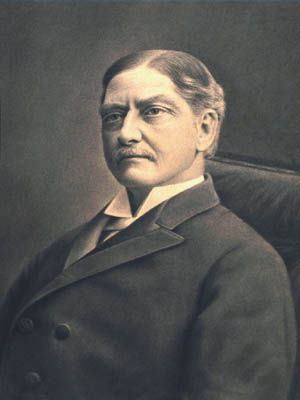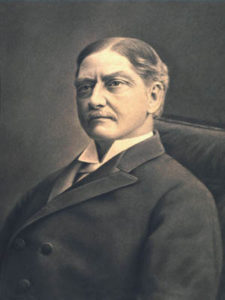Newton Blanchard
Attorney Newton Crain Blanchard served as one of Louisiana's representatives in the U.S. House of Representatives (1880-1893), an associate justice in the Louisiana State Supreme Court (1897-1904) and governor of the state (1904-1908).

Courtesy of Wikimedia Commons
Newton C. Blanchard. Unknown
Attorney Newton Crain Blanchard served as one of Louisiana’s representatives in the US House of Representatives (1880-1893), an associate justice in the Louisiana State Supreme Court (1897-1904) and governor of the state (1904-1908). As governor, he focused much of his energy on reforming Louisiana’s failing public school system, dramatically increasing the number of high schools and promoting the certification of teachers and librarians.
Newton Crain Blanchard was born on Rosedale Plantation, near Boyce in Rapides Parish, on January 29, 1849. The son of Carey H. Blanchard and Frances Amelia Crain, he attended private schools, including the Louisiana State Seminary of Learning, and the University of Louisiana (now Tulane University), where he earned a law degree in 1870.
In 1871, Blanchard began a law practice in Shreveport. Five years later, he was elected chairman of the Democratic Committee of Caddo Parish. In 1879, he represented Caddo Parish at the Louisiana constitutional convention. Blanchard was elected to the U. S. House of Representatives in 1880 and served until 1893, when he was appointed to fill the unexpired term of Edward Douglas White in the US Senate. He held that seat until 1897, when he was appointed associate justice of the Louisiana Supreme Court and he served in that capacity until 1904, when he became governor.
Elected as governor on May 10, 1904, Blanchard soon enacted sweeping changes in public education policies. On his watch, appropriations for education rose from $1.5 million to $3.5 million, and the number of high schools doubled. He also signed legislation establishing a certification process for teachers, and created a state reform school so minors would no longer be incarcerated in the state penitentiary system.
Reducing the gubernatorial appointive power, Blanchard helped make the positions of state supreme court judge, school board member and property assessor, among others, elected rather than appointed. He also approved a law making state primaries mandatory, thereby eliminating gubernatorial nomination by convention. Blanchard sought to reform property assessments by creating a State Board of Equalization to identify properties not included on the tax rolls.
After his term as governor ended, Blanchard resumed his law practice in Shreveport. He also served as president of the Louisiana constitutional convention in 1913 and as a delegate to four Democratic national conventions. He served on the board of directors for the City National Bank of Shreveport and was a member of the Shreveport Chamber of Commerce. Blanchard died on June 22, 1922 and was interred in Greenwood Cemetery in Shreveport.
This entry was adapted from the Dictionary of Louisiana Biography, a publication of the Louisiana Historical Association in cooperation with the Center for Louisiana Studies at the University of Louisiana, Lafayette.
Sources: Miriam G. Reeves, The Governors of Louisiana (1962); Roy Clashan, American Governors and Gubernatorial Elections, 1775-1975 (n.d.).
